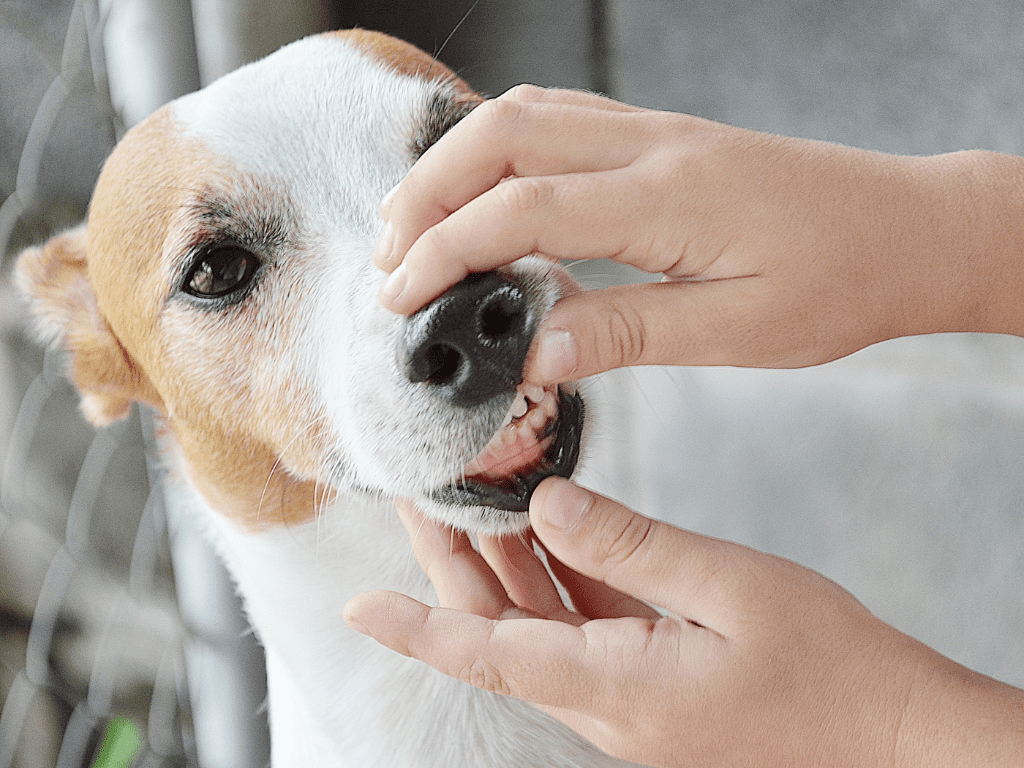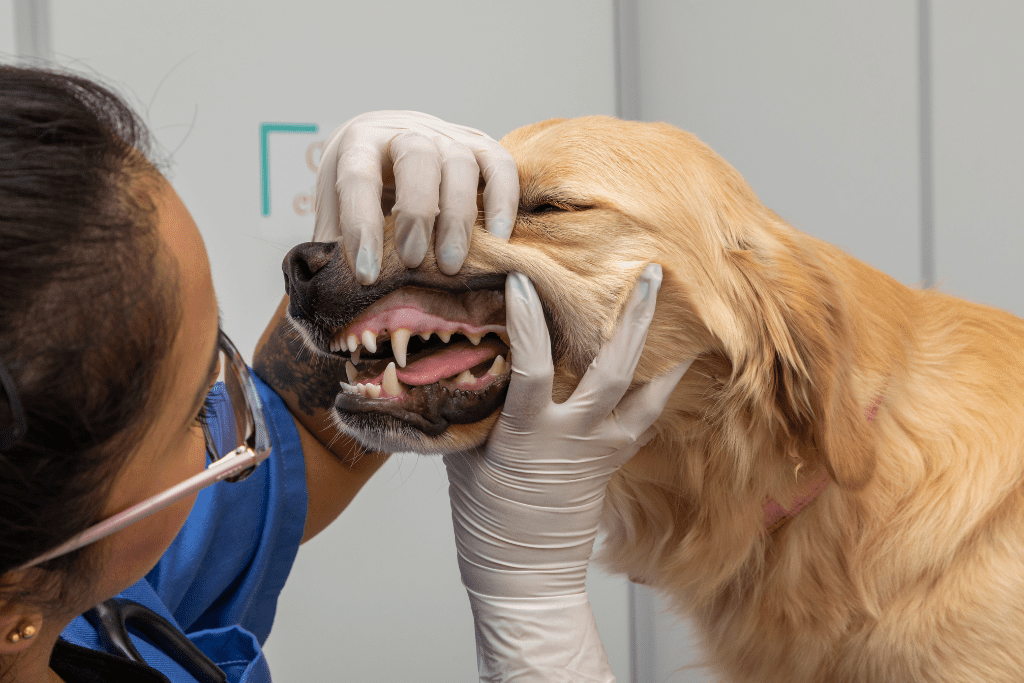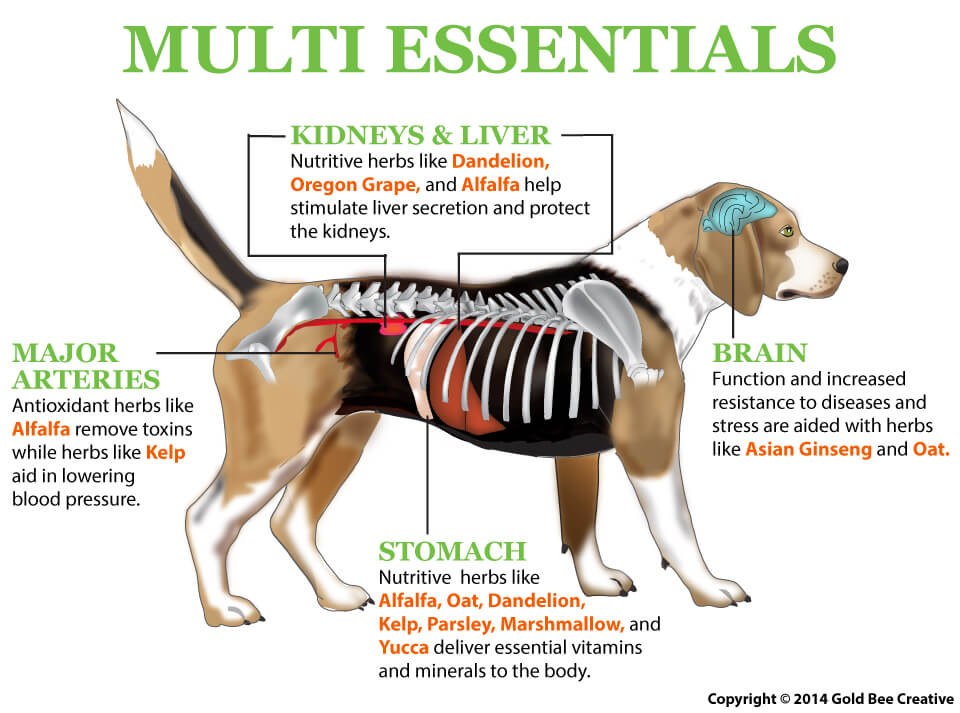bad breath and dental support

free shipping over $100 (USA & Canada)
1-877-937-4372 the pet expert hotline

Bad dog breath, also known as halitosis, is one of the most common problems in the animal world. A lack of dental hygiene usually causes this oral malodor, but it can also be related to a severe underlying condition that might require immediate support.
Dealing with oral health goes beyond addressing the foul-smelling breath that can be uncomfortable for the humans sharing the same space with that pet. The duration and severity of these oral disorders can cause pain and inflammation, which might not be apparent but can affect your furkiddo’s quality of life, behavior, longevity, and overall health.
The most effective way to delay periodontal disease and prevent bad dog breath is being proactive at home and taking your little one to the vet for plaque removal when necessary.
In most cases, a pungent breath can be the first clinical sign of periodontal disease, commonly due to poor oral hygiene. However, bad dog breath can also be an occurrence of other illnesses such as:
Even dogs with no underlying health problems may experience stinky breath due to dry mouth. This symptom, associated with dehydration, can easily happen during the hot months and with older dogs, so always provide plenty of water to your little one.
Therefore, to find out the real cause of the bad dog breath, you must take your little one for a veterinarian consult for a proper diagnosis.
The first signs that your vet will likely investigate are:
Blood work and other tests could also be conducted if an underlying condition is causing the bad breath. The test results will help guide the next steps.

The veterinarian will prescribe medication accordingly to the presence of an underlying cause and the severity of the symptoms. Sometimes, the vet might recommend a thorough dental cleaning in the clinic to remove tartar plaques.
If the bad dog breath is confirmed to be related to a lack of oral hygiene, the vet might also recommend daily measures to help. Brushing your little one’s teeth periodically at home with pet-specific products is one of them.
Dental disease and bad dog breath prevention can include offering treats and special toys to help remove the tartar buildup from the pet’s teeth. Furthermore, these natural supplements may contribute as proactive and active measures to help improve your pup’s oral health:
bad breath and dental support

Mouth Drops, Stimmune and Multi Essentials
bundle and save with pet expert kits
3 month supply for a small to medium size pet
Noticing terrible breath in your little one doesn’t just mean cringing a bit when they try to give you kisses, but it can be a warning sign of serious dental diseases or other health issues. This bundle provides complete natural support for teeth, gums, and breath as well as support for the immune system, and extra nutritional care.


Noticing terrible breath in your little one doesn’t just mean cringing a bit when they try to give you kisses, but it can be a warning sign of serious dental diseases or other health issues. This bundle provides complete natural support for teeth, gums, and breath as well as support for the immune system, and extra nutritional care.

Bad breath in dogs or cats can be a warning sign of serious cat or dog dental diseases or other health issues. That’s why it is imperative to take them to a vet for a full body examination when you smell something stinky in their mouth.
NHV’s Bad Breath and Dental Super Support can help support your furkid by freshening up their breath, strengthening their immune system against infections that cause dental problems, and helping with underlying bacterial conditions. The kit contains our main support for oral problems – Mouth Drops – along with two other vet-formulated immune support supplements, Stimmune and Multi Essentials.
All our products are of human-grade quality. These 100% natural herbal supplements are free of added preservatives, additives, flavorings, or artificial colors.
How NHV Remedies Support Bad Breath in Cats and Dogs
We recommend using natural supplements like the ones in the Dental Kit to support the dental condition of your little one.
Mouth Drops is an herbal vet-formulated oral supplement that aids in eliminating bad breath and gum disease. The 100% natural supplement contains a blend of herbs with natural anti-inflammatory, anti-fungal, and astringent properties, like Neem (popular in pet dental products). The sage in the extract is commonly used to support furkids with gingivitis, it also helps with neutralizing the mouth odor. The formulation also guards against tooth decay and plaque. The anti-inflammatory properties in herbs like Plantain, White oak can support swollen gum. Myrrh has natural properties that may help control bacterial infections in the mouth.
Our pet experts have bundled Stimmune into the kit to support oral infections further. This immunostimulatory herbal extract helps strengthen the body’s immune system to fight against recurrent viruses and bacterial infections, which may benefit dental diseases.
The last supplement added is Multi Essentials, a plant-based multi-vitamin herbal extract that helps give your little one a nutritional boost. Herbs like oats and kelp are high in minerals like zinc and calcium, which can be very beneficial for gum and dental health. Zinc also may help with plaque formation. To top it all off, Multi Essentials may also aid digestion and appetite, which can be affected due to a sore mouth.
Possible Reasons Behind Bad Breath in Dogs and Cats?
Ways to Get Rid of Bad Breath in Cats and Dogs
If you want to solve the issue of bad breath, it is vital to look into potential underlying conditions with your veterinarian. Once the vet has uncovered the mystery behind the stench in your pet’s breath, proper medical treatment can be offered to address the condition.
You can also help your little one’s oral hygiene at home by regularly cleaning their teeth. Bacteria can accumulate in furkids’ plaques if you don’t help them do regular cleaning. This could lead to a number of dental problems.
On top of that, a balanced and nutritious diet is also the key to oral health. So you may consider switching up their diet.
Connect with our Pet Experts for a personalized nutrition plan for your little one!
Natural Support for Cat and Dog Dental Health
All our supplements are full-spectrum extracts, meaning that the herbs' biochemical and phytochemical constituents are preserved during the extraction process to produce a supplement with strong bioavailability. Our products are also made in Canada and used globally.
We have a team of supportive Pet Experts to help you and your furkiddos with any questions and concerns! So, please don’t hesitate to reach out if you need anything! We're always here to help you and your little one!
Combat cat and dog dental health issues and bad breath in dogs and cats with our Dental Kit!
All NHV supplements are made with the finest quality organic or ethically harvested herbs. We use non-GMO vegetable glycerin as our base. NHV products are full-spectrum extracts.
Mouth Drops
Stimmune
Multi Essentials
Select your pet's weight to determine the correct dose.
To be taken twice daily. Determine your pet’s weight and then use the easy chart below to determine the correct dose. This is the minimum dosage.
Pet's Weight Dosage
0 - 15 lb = 0.5 ml
16 - 30 lb = 1.0 ml
31 - 45 lb = 1.5 ml
46 - 60 lb = 2.0 ml
61 - 75 lb = 2.5 ml
Over 75 lb = 3.0 ml
How to Administer
Shake well before use. The easiest method is to use the dropper provide and place the drops into your pet’s food or favorite treat. You can also use the dropper and squirt directly into the pet’s mouth.
Some pets can be finicky, if this occurs consider hiding the drops in foods most pet’s love such as fish, chicken or yogurt or a favorite treat. If your pet only eats dry food then soak a few kibbles at feeding time.
For Best Results
Herbal dietary supplements are beneficial to the health and wellbeing of your pet and are safe for long-term use. Every pet responds to natural herbal supplements differently, therefore it is important to be consistent and administer the product daily. Supplements generally take two to four weeks to take effect, however this will vary from one animal to the next.
Product Storage
All NHV Natural Pet Products are pure herbal extracts and contain no artificial additives, preservatives or coloring. Shelf life after opening is 6 months and must be refrigerated after opening.
Cautions and Contraindications: Do not use our supplements in pregnant or nursing animals. Speak to your vet before using our products. A second visit is recommended if your pet’s condition does not improve, or deteriorates after continued use of the supplements.
Bad breath in dogs or cats can be a warning sign of serious cat or dog dental diseases or other health issues. That’s why it is imperative to take them to a vet for a full body examination when you smell something stinky in their mouth.
NHV’s Bad Breath and Dental Super Support can help support your furkid by freshening up their breath, strengthening their immune system against infections that cause dental problems, and helping with underlying bacterial conditions. The kit contains our main support for oral problems – Mouth Drops – along with two other vet-formulated immune support supplements, Stimmune and Multi Essentials.
All our products are of human-grade quality. These 100% natural herbal supplements are free of added preservatives, additives, flavorings, or artificial colors.
How NHV Remedies Support Bad Breath in Cats and Dogs
We recommend using natural supplements like the ones in the Dental Kit to support the dental condition of your little one.
Mouth Drops is an herbal vet-formulated oral supplement that aids in eliminating bad breath and gum disease. The 100% natural supplement contains a blend of herbs with natural anti-inflammatory, anti-fungal, and astringent properties, like Neem (popular in pet dental products). The sage in the extract is commonly used to support furkids with gingivitis, it also helps with neutralizing the mouth odor. The formulation also guards against tooth decay and plaque. The anti-inflammatory properties in herbs like Plantain, White oak can support swollen gum. Myrrh has natural properties that may help control bacterial infections in the mouth.
Our pet experts have bundled Stimmune into the kit to support oral infections further. This immunostimulatory herbal extract helps strengthen the body’s immune system to fight against recurrent viruses and bacterial infections, which may benefit dental diseases.
The last supplement added is Multi Essentials, a plant-based multi-vitamin herbal extract that helps give your little one a nutritional boost. Herbs like oats and kelp are high in minerals like zinc and calcium, which can be very beneficial for gum and dental health. Zinc also may help with plaque formation. To top it all off, Multi Essentials may also aid digestion and appetite, which can be affected due to a sore mouth.
Possible Reasons Behind Bad Breath in Dogs and Cats?
Ways to Get Rid of Bad Breath in Cats and Dogs
If you want to solve the issue of bad breath, it is vital to look into potential underlying conditions with your veterinarian. Once the vet has uncovered the mystery behind the stench in your pet’s breath, proper medical treatment can be offered to address the condition.
You can also help your little one’s oral hygiene at home by regularly cleaning their teeth. Bacteria can accumulate in furkids’ plaques if you don’t help them do regular cleaning. This could lead to a number of dental problems.
On top of that, a balanced and nutritious diet is also the key to oral health. So you may consider switching up their diet.
Connect with our Pet Experts for a personalized nutrition plan for your little one!
Natural Support for Cat and Dog Dental Health
All our supplements are full-spectrum extracts, meaning that the herbs' biochemical and phytochemical constituents are preserved during the extraction process to produce a supplement with strong bioavailability. Our products are also made in Canada and used globally.
We have a team of supportive Pet Experts to help you and your furkiddos with any questions and concerns! So, please don’t hesitate to reach out if you need anything! We're always here to help you and your little one!
Combat cat and dog dental health issues and bad breath in dogs and cats with our Dental Kit!
All NHV supplements are made with the finest quality organic or ethically harvested herbs. We use non-GMO vegetable glycerin as our base. NHV products are full-spectrum extracts.
Mouth Drops
Stimmune
Multi Essentials
Select your pet's weight to determine the correct dose.
To be taken twice daily. Determine your pet’s weight and then use the easy chart below to determine the correct dose. This is the minimum dosage.
Pet's Weight Dosage
0 - 15 lb = 0.5 ml
16 - 30 lb = 1.0 ml
31 - 45 lb = 1.5 ml
46 - 60 lb = 2.0 ml
61 - 75 lb = 2.5 ml
Over 75 lb = 3.0 ml
How to Administer
Shake well before use. The easiest method is to use the dropper provide and place the drops into your pet’s food or favorite treat. You can also use the dropper and squirt directly into the pet’s mouth.
Some pets can be finicky, if this occurs consider hiding the drops in foods most pet’s love such as fish, chicken or yogurt or a favorite treat. If your pet only eats dry food then soak a few kibbles at feeding time.
For Best Results
Herbal dietary supplements are beneficial to the health and wellbeing of your pet and are safe for long-term use. Every pet responds to natural herbal supplements differently, therefore it is important to be consistent and administer the product daily. Supplements generally take two to four weeks to take effect, however this will vary from one animal to the next.
Product Storage
All NHV Natural Pet Products are pure herbal extracts and contain no artificial additives, preservatives or coloring. Shelf life after opening is 6 months and must be refrigerated after opening.
Cautions and Contraindications: Do not use our supplements in pregnant or nursing animals. Speak to your vet before using our products. A second visit is recommended if your pet’s condition does not improve, or deteriorates after continued use of the supplements.
Oral Care

Holistic Support for Gingivitis, Gum Disease & Periodontal Disease in Dogs
buy 2 and save $3
3 month supply for a small to medium size pet.
Does your puppy have bad breath that lasts all day? Food left over from meal time can form a film over their teeth and gums that may become plaque and lead to bone loss—commonly known as periodontal disease in dogs. Supporting their dental health with daily brushing, dental cleanings and NHV Mouth Drops will help keep those beautiful pearly whites healthier for longer.


Does your puppy have bad breath that lasts all day? Food left over from meal time can form a film over their teeth and gums that may become plaque and lead to bone loss—commonly known as periodontal disease in dogs. Supporting their dental health with daily brushing, dental cleanings and NHV Mouth Drops will help keep those beautiful pearly whites healthier for longer.

Periodontal disease is inflammation of some or all of the support around the teeth and it is the most common dental disease in our canine friends. Compared to gingivitis, periodontitis implies tooth loss.
By the time your furkiddo is three years old, they will likely have some form of periodontal disease, which can worsen, especially if preventative measures are not taken. NHV Mouth Drops are like an all-natural mouthwash for your dog. It contains a blend of plant extracts prized for their infection-fighting and antiseptic properties that help control bacteria in the mouth and help prevent plaque, help prevent tooth or gum disease in dogs and help eliminate dog bad breath. These drops are specially formulated by a master herbalist and a holistic veterinarian to be safe for use on pups of all breeds and sizes. Dogs should be at least four months old, fully weaned, and fully vaccinated for safe use.
NHV Mouthdrops is an all-natural plant-based supplement that is vet-formulated to support overall dental health. Herbs like white oak and plantain, which are rich in antioxidants and astringent properties, have a long history of use to help decrease inflammation in the mouth and help control bleeding. The immune-stimulating properties in Mouth Drops are beneficial for increasing white blood cell count and may be beneficial for soothing inflamed gums, help prevent tooth decay and plaque, and help fight gingivitis in dogs and periodontal disease in dogs. Other ingredients like sage, myrrh and neem contain antiseptic properties that help to kill bacteria, neutralize bad odors and help eliminate bad dog breath.
Never attempt to diagnose your pet. A vet will be able to do a proper oral exam and x-rays to assess your little one’s dental health.
With NHV Supplements, you can help provide your furkiddo with the extra support they need to maintain their dental health. Natural supplements like Mouth Drops are safe for long-term use, gluten-free, organic or wild crafted and 100% plant-based. If your pup is struggling with their dental health, know that you don't have to face it alone. We are here with our team of pet experts to help you every step of the way!
Made with the finest, organically grown, or ethically harvested herbs. Made specifically for pets, vet-formulated and vet approved.
Select your pet's weight to determine the correct dose.
Topically: To be taken twice daily. 1 drop for every 2 lb of body weight twice a day up to 50 lb. This is the minimum dosage.
Using the dropper squirt the dosage along teeth and gums.
Orally: To be taken twice daily. Determine your pet’s weight and then use the easy chart below to determine the correct dose. This is the minimum dosage.
Pet's Weight Dosage
0 - 15 lb = 0.5 ml
16 - 30 lb = 1.0 ml
31 - 45 lb = 1.5 ml
46 - 60 lb = 2.0 ml
61 - 75 lb = 2.5 ml
Over 75 lb = 3.0 ml
Some pets may require a larger dosage due to their metabolism. You can safely double the recommended dosage.
How to Administer
Shake well before use. Use the dropper provided to squirt the dosage directly into your pet’s mouth along the gums and teeth.. Some pets may be finicky and resist your attempts to administer drops directly into their mouth. If this occurs, try placing the drops in your pet’s food or favourite treat. You may want to consider hiding the drops in foods most pet’s love such as fish, chicken, or yogurt. When serving dry food, use the dropper to soak a few kibbles at feeding time.
For Best Results
Herbal dietary supplements are beneficial to the health and wellbeing of your pet and are safe for long-term use. Every pet responds to natural herbal supplements differently, therefore it is important to be consistent and administer the product daily. Supplements generally take two to four weeks to take effect, however this will vary from one animal to the next.
Product Storage
All NHV Natural Pet Products are pure herbal extracts and contain no artificial additives, preservatives or coloring. Shelf life after opening is 6 months and must be refrigerated after opening.
Cautions and Contraindications
Do not use Mouth Drops in pregnant or nursing animals. Speak to your vet before using our products. A second visit is recommended if your pet’s condition does not improve, or deteriorates after continued use of the supplements.
All information provided by NHV Natural Pet Products is for educational purposes only.
Periodontal disease is inflammation of some or all of the support around the teeth and it is the most common dental disease in our canine friends. Compared to gingivitis, periodontitis implies tooth loss.
By the time your furkiddo is three years old, they will likely have some form of periodontal disease, which can worsen, especially if preventative measures are not taken. NHV Mouth Drops are like an all-natural mouthwash for your dog. It contains a blend of plant extracts prized for their infection-fighting and antiseptic properties that help control bacteria in the mouth and help prevent plaque, help prevent tooth or gum disease in dogs and help eliminate dog bad breath. These drops are specially formulated by a master herbalist and a holistic veterinarian to be safe for use on pups of all breeds and sizes. Dogs should be at least four months old, fully weaned, and fully vaccinated for safe use.
NHV Mouthdrops is an all-natural plant-based supplement that is vet-formulated to support overall dental health. Herbs like white oak and plantain, which are rich in antioxidants and astringent properties, have a long history of use to help decrease inflammation in the mouth and help control bleeding. The immune-stimulating properties in Mouth Drops are beneficial for increasing white blood cell count and may be beneficial for soothing inflamed gums, help prevent tooth decay and plaque, and help fight gingivitis in dogs and periodontal disease in dogs. Other ingredients like sage, myrrh and neem contain antiseptic properties that help to kill bacteria, neutralize bad odors and help eliminate bad dog breath.
Never attempt to diagnose your pet. A vet will be able to do a proper oral exam and x-rays to assess your little one’s dental health.
With NHV Supplements, you can help provide your furkiddo with the extra support they need to maintain their dental health. Natural supplements like Mouth Drops are safe for long-term use, gluten-free, organic or wild crafted and 100% plant-based. If your pup is struggling with their dental health, know that you don't have to face it alone. We are here with our team of pet experts to help you every step of the way!
Made with the finest, organically grown, or ethically harvested herbs. Made specifically for pets, vet-formulated and vet approved.
Select your pet's weight to determine the correct dose.
Topically: To be taken twice daily. 1 drop for every 2 lb of body weight twice a day up to 50 lb. This is the minimum dosage.
Using the dropper squirt the dosage along teeth and gums.
Orally: To be taken twice daily. Determine your pet’s weight and then use the easy chart below to determine the correct dose. This is the minimum dosage.
Pet's Weight Dosage
0 - 15 lb = 0.5 ml
16 - 30 lb = 1.0 ml
31 - 45 lb = 1.5 ml
46 - 60 lb = 2.0 ml
61 - 75 lb = 2.5 ml
Over 75 lb = 3.0 ml
Some pets may require a larger dosage due to their metabolism. You can safely double the recommended dosage.
How to Administer
Shake well before use. Use the dropper provided to squirt the dosage directly into your pet’s mouth along the gums and teeth.. Some pets may be finicky and resist your attempts to administer drops directly into their mouth. If this occurs, try placing the drops in your pet’s food or favourite treat. You may want to consider hiding the drops in foods most pet’s love such as fish, chicken, or yogurt. When serving dry food, use the dropper to soak a few kibbles at feeding time.
For Best Results
Herbal dietary supplements are beneficial to the health and wellbeing of your pet and are safe for long-term use. Every pet responds to natural herbal supplements differently, therefore it is important to be consistent and administer the product daily. Supplements generally take two to four weeks to take effect, however this will vary from one animal to the next.
Product Storage
All NHV Natural Pet Products are pure herbal extracts and contain no artificial additives, preservatives or coloring. Shelf life after opening is 6 months and must be refrigerated after opening.
Cautions and Contraindications
Do not use Mouth Drops in pregnant or nursing animals. Speak to your vet before using our products. A second visit is recommended if your pet’s condition does not improve, or deteriorates after continued use of the supplements.
All information provided by NHV Natural Pet Products is for educational purposes only.
multivitamin support

Herbal Digestive Aid, Energy Booster, and Multivitamin for Dogs
buy 2 and save $3
3 month supply for a small to medium size pet
NHV’s multivitamins for dogs targets the brain, stomach, major arteries, kidneys, and liver with a powerful blend of herbal support.


NHV’s multivitamins for dogs targets the brain, stomach, major arteries, kidneys, and liver with a powerful blend of herbal support.

Millions of people take multivitamins daily to support their health, and it only makes sense our canine companions can benefit just as much. This 100% natural plant-based liquid blend can help your dog with nutritional deficiencies.
Signs of Possible Vitamin Deficiency in Dogs
NHV’s Multi-Essentials are packed with herbs that are rich in vitamins and minerals. This vet-formulated blend is designed to benefit your dog’s health using all-natural organically grown herbs with no additives or preservatives.
Even if your pet is healthy, supplying a multivitamin is essential to maintain good health, and some pets need more vitamins and minerals than others. For more, read NHV’s blog, vet talk with Dr. Hillary Cook.
Benefits of NHV’s Multivitamins for Dogs
You can read NHV's blog about the importance of dog vitamin supplements. All pets can benefit from NHV’s Natural Pet Product, even small exotic pets.
If you have questions about plant-based supplements including our multivitamins for dogs, you can schedule a consultation with one of our highly trained holistic veterinarians, because, at NHV, total health and wellness for all pets is our top priority.

Select your pet's weight to determine the correct dose.
To be taken twice daily. Determine your pet’s weight and then use the easy chart below to determine the correct dose. This is the minimum dosage.
Pet's Weight Dosage
0 - 15 lb = 0.5 ml
16 - 30 lb = 1.0 ml
31 - 45 lb = 1.5 ml
46 - 60 lb = 2.0 ml
61 - 75 lb = 2.5 ml
Over 75 lb = 3.0 ml
How to Administer
Shake well before use. The easiest method is to use the dropper provide and places the drops into your pet’s food or favorite treat. You can also use the dropper and squirt directly into the pet’s mouth.
Some pets can be finicky, if this occurs consider hiding the drops in foods most pet’s love such as fish, chicken or yogurt or a favourite treat. If your pet only eats dry food then soak a few kibbles at feeding time.
For Best Results
Herbal dietary supplements are beneficial to the health and wellbeing of your pet and are safe for long-term use. Every pet responds to natural herbal supplements differently, therefore it is important to be consistent and administer the product daily. Supplements generally take two to four weeks to take effect, however this will vary from one animal to the next.
Product Storage
All NHV Natural Pet Products are pure herbal extracts and contain no artificial additives, preservatives or coloring. Shelf life after opening is 6 months and must be refrigerated after opening.
Cautions and Contraindications
Do not use Multi Essentials in pregnant or nursing animals. Speak to your vet before using our products. A second visit is recommended if your pet’s condition does not improve, or deteriorates after continued use of the supplements.
All information provided by NHV Natural Pet Products is for educational purposes only.
Millions of people take multivitamins daily to support their health, and it only makes sense our canine companions can benefit just as much. This 100% natural plant-based liquid blend can help your dog with nutritional deficiencies.
Signs of Possible Vitamin Deficiency in Dogs
NHV’s Multi-Essentials are packed with herbs that are rich in vitamins and minerals. This vet-formulated blend is designed to benefit your dog’s health using all-natural organically grown herbs with no additives or preservatives.
Even if your pet is healthy, supplying a multivitamin is essential to maintain good health, and some pets need more vitamins and minerals than others. For more, read NHV’s blog, vet talk with Dr. Hillary Cook.
Benefits of NHV’s Multivitamins for Dogs
You can read NHV's blog about the importance of dog vitamin supplements. All pets can benefit from NHV’s Natural Pet Product, even small exotic pets.
If you have questions about plant-based supplements including our multivitamins for dogs, you can schedule a consultation with one of our highly trained holistic veterinarians, because, at NHV, total health and wellness for all pets is our top priority.

Select your pet's weight to determine the correct dose.
To be taken twice daily. Determine your pet’s weight and then use the easy chart below to determine the correct dose. This is the minimum dosage.
Pet's Weight Dosage
0 - 15 lb = 0.5 ml
16 - 30 lb = 1.0 ml
31 - 45 lb = 1.5 ml
46 - 60 lb = 2.0 ml
61 - 75 lb = 2.5 ml
Over 75 lb = 3.0 ml
How to Administer
Shake well before use. The easiest method is to use the dropper provide and places the drops into your pet’s food or favorite treat. You can also use the dropper and squirt directly into the pet’s mouth.
Some pets can be finicky, if this occurs consider hiding the drops in foods most pet’s love such as fish, chicken or yogurt or a favourite treat. If your pet only eats dry food then soak a few kibbles at feeding time.
For Best Results
Herbal dietary supplements are beneficial to the health and wellbeing of your pet and are safe for long-term use. Every pet responds to natural herbal supplements differently, therefore it is important to be consistent and administer the product daily. Supplements generally take two to four weeks to take effect, however this will vary from one animal to the next.
Product Storage
All NHV Natural Pet Products are pure herbal extracts and contain no artificial additives, preservatives or coloring. Shelf life after opening is 6 months and must be refrigerated after opening.
Cautions and Contraindications
Do not use Multi Essentials in pregnant or nursing animals. Speak to your vet before using our products. A second visit is recommended if your pet’s condition does not improve, or deteriorates after continued use of the supplements.
All information provided by NHV Natural Pet Products is for educational purposes only.